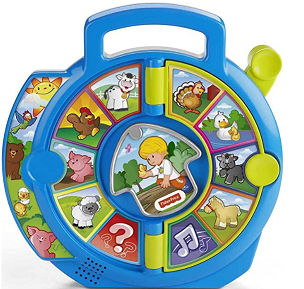On Complaints, Fair Trials, and Justice
Disclaimer: This post deals with pseudo-legal matters, and while I have attempted to keep it within more of a philosophical realm, I am not a lawyer, and all statements below are my own personal opinion and should not be taken as legal facts or precedence. This is not legal advice merely opinion, if you are seeking legal advice - please seek a qualified lawyer in your area. The statements below only represent myself and are unrelated to any organization, association, or workplace to which I am involved or otherwise employed.
Oh Politics ! it is not something I enjoy hearing or talking about, and as I general rule I try to stay at least at arms length about it. This is not to say I do not believe in voting - I do, it is simply to say that many matters I find discussed do not seem to have much personal relevance in my daily life.
It becomes different though, when you feel like you know the people involved. Far removed from knowing Prime Ministers, or similar heads of state, it is easy to ignore much of the politics and still lead an average life.
We tend to believe we live in a "fair" world, and we can often find ourselves upset, when things do not go 'as we expect'. 'That is NOT FAIR!' you may hear people say.
When you live removed from the world of politics, like I have, you sometimes miss important things. You sometimes take things for granted.
I am lucky to live in a society that generally protects those accused of a crime. "Innocent until proven guilty", otherwise known as the 'presumption of innocence'. This rule seems fair, and while generally applied to our justice system, would also feel like it should apply to any other accusations made against you anywhere in our daily lives. Depending on the nature of the infraction, the evidence required to 'proof' you guilt varies. Take for example being accused of murder, the state needs to show the persons guilt beyond a reasonable doubt, but in less serious matters such as a civil suit, a verdict maybe rendered based on the preponderance of the evidence.
A corollary to this idea (not as popular in fictional TV shows), is the idea that whether your are "judged' by a jury of your peers or by a single judge. Those who have direct knowledge of the event, are part of events itself, or have a personal relationship with the defendant, MUST recuse themselves due to the potential bias.
Suppose, for example a judge is presiding over a case of theft. The defendant is accused of stealing from the judge himself! - The judge cannot issue a verdict over this situation. He/She cannot be said to hold up to the presumption of innocence in which the judge himself were the victim of the crime. If the judge were to try and do this, a higher court would easily overrule this decision on appeal as a potential bias to the case at hand.
Taken to the extreme, we would all generally agree, that if those that accuse us of a crime, are solely responsible for determining our guilt/innocence, something is very WRONG with that type of justice system. In essence we are unable to 'be like Switzerland' because as the victim we have just a strong emotional connection to the case.
Their are some at this point that might argue, "Brad you just just stick to technical stuff", not this politics, and you are probably correct. It is interesting that in the realm of programming, it is always the HUMAN that makes the decision that directly (or indirectly) effects the lives of other human beings. We sometimes get frustrated at the software 'not working', but it has no emotion, nor does it understand your frustration. Computers do not make mistakes, Computers do not make decisions - Humans do, and Humans must always remain accountable - Machines are easy, they just do what they are told. Humanity is a whole different ballgame all together - maybe?
Whatever way you slice it, in any event where an accusation is made against you - their must exist a) the presumption of innocence b) those that are complainants/victims must recuse themselves of any decision making / voting power they have as to the guilt or sentence of the accused.
Simply imagine a world, where you own guilt is decided solely by your accuser? - Is that a type of world that you want to live in? - that you want to bring your kids up in ?
You might thing this idea is CRAZY - no community would be so cruel and harsh to its citizens right?
Consider the public meeting held in the small community of Hanwell, NB (Canada). I suggest watching this situation unfold very carefully, as to the precedence being set. I fear it is not a good result for our society for our own humanity. If this small community upholds the ability for one of it's counselors to be sanctioned based on the results of a vote, given by those very same people that brought the complaint towards him. If it is true as stated, that all members of the council raised complaints against the defendant, then - based on the ideals of the presumption of innocence, they should recuse themselves from the voting process. If, they are not the complainant, then who is?, where are the records of the formal filing of any complaint by anyone?
Now to be fair, the presumption of innocence clause, tends to be limited in the grounds of the criminal justice system. It could be therefore reasoned that where the complaints brought forward in this council meeting, do not constitute a criminal matter - I would contend, however, that since a decision was made to bring legal paperwork forward to the defendant, as to the possibility of potential litigation or criminal activity - this action tends towards the federal law that protects those accused.
It could further be argued that it is a human resource (HR) matter, and while I have limited experiences in 'HR'. It would tend to follow, that even in a HR matter. The person brining the complaint against the employee cannot be the person who ultimately decides the truth or innocence's of the case. Whether 'HR' itself can be impartial itself can be questioned (as they are likely paid by he same employer) but even if we accept that 'HR' can be impartial, certainly those who make the accusation itself cannot.
The decision on justice or related sanctions must therefore be judged by those both impartial to the situation and based on the facts and evidence on hand. They must hold up to a standard of reasonability, not hearsay. When events occur that do not follow these, their must be a right to appeal solely based on the built in bias of the system that provided the judgement.
I can only suggest, and urge those to watch closely on what happens over the next few weeks, months. Will the small community of Hanwell, NB, allow themselves to be governed in a way such that the accusers are freely allowed to play the role of judge, jury, and executioner?
Something to think about!
Related Reading:









Comments
Post a Comment